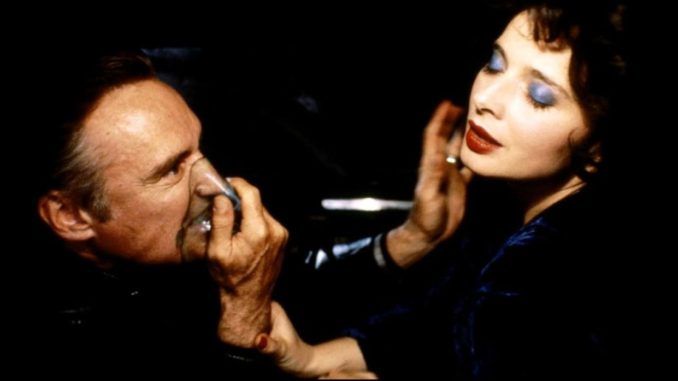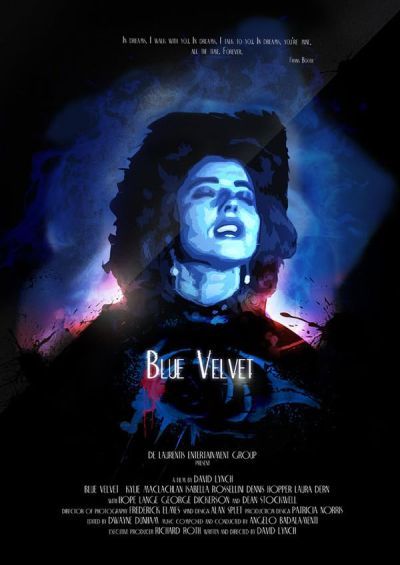
Rating: B
Dir: David Lynch
Star: Isabella Rossellini, Kyle MacLachlan, Dennis Hopper, Laura Dern
I could never get into a lot of Lynch’s output, save for the features between this and Mulholland Drive, where he actually seemed to have some interest in coherent narrative. While I can appreciate his style, I am too much of a fan of a story to relate to the image-based approach. I checked back in with Eraserhead a couple of years ago. Still nope. But again: he was an undeniable cinematic artist. Just not my cinematic artist – though I’m grateful for Lost Highway introducing me to Rammstein. I’d been wanting a chance to revisit what’s likely his best-known work for a while, especially after seeing clips of it on The Story of Film documentary series.
Yesterday’s news provided the unfortunate impetus to that end. A certain poignancy results, especially when the song plays on the soundtrack which should be called, “We have Song to the Siren at home”. It is an impressive peeling back of the thin veneer of small town American life, to reveal the sickness underneath. That sickness is personified in Frank Booth (Hooper), and I’m hard pushed to think of a scarier movie villain. Anton Chigurh? Hannibal Lecter? Only maybe. Any time Frank is on screen, you’re never more than a blink of an eye from sadistic violence, which hangs over every scene he’s in. On the plus side, just as I drank Guinness because of Rutger Hauer, I drink PBR so I can say, “Heineken? Fuck that shit!”
 In contrast, college student Jeffrey Beaumont (MacLachlan) and schoolgirl Sandy Williams (Dern) are woefully unprepared for the level of evil they’ll encounter. They blithely Scooby-Doo their way through an amateur investigation, after he finds a severed ear in a field. Jeffrey forgets the rule about not sticking your dick in crazy, and begins a sweetly S&M relationship with lounge singer Dorothy Vallens (Rossellini). The problem is, she is in a very not sweetly S&M situation with Booth, after he kidnaps her husband and child. Police corruption is also looming large, which is troubling since Sandy’s father is a detective. Is he straight or crooked? And will Jeffrey’s balls drop in time to face off against Frank?
In contrast, college student Jeffrey Beaumont (MacLachlan) and schoolgirl Sandy Williams (Dern) are woefully unprepared for the level of evil they’ll encounter. They blithely Scooby-Doo their way through an amateur investigation, after he finds a severed ear in a field. Jeffrey forgets the rule about not sticking your dick in crazy, and begins a sweetly S&M relationship with lounge singer Dorothy Vallens (Rossellini). The problem is, she is in a very not sweetly S&M situation with Booth, after he kidnaps her husband and child. Police corruption is also looming large, which is troubling since Sandy’s father is a detective. Is he straight or crooked? And will Jeffrey’s balls drop in time to face off against Frank?
It’s all rather awkward, often feeling like the characters are inhabiting two different films. This is likely entirely deliberate, yet it kept taking me out of the experience. Sandy is the worst offender, wittering on about robins at unnecessary length. It also doesn’t feel as extreme now as reactions at the time would suggest. This is more psychologically brutal than explicit, particularly in the raw emotions of Frank and Dorothy. But in contrast to most Lynch films, the narrative is linear and straightforward. To me, this helps, because it’s not getting in the way of the complex swirl of emotions the director is trying to provoke. Love him or not, David Lynch was one of a kind. They truly broke the mould from which he came. Rest in weird, Mr. Lynch.
